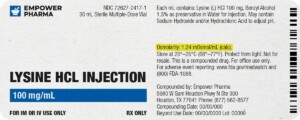Prednisone is contraindicated in patients with known hypersensitivity to the drug or its components. It should also be used with caution in the following conditions:
Immunosuppression Risk:
Corticosteroids may increase susceptibility to infections, potentially even at lower doses. Studies suggest that prolonged corticosteroid use may increase Pneumocystis jirovecii Pneumonia (PJP) risk, particularly in non-HIV immunocompromised patients.[2]
Systemic Fungal Infections:
Corticosteroid use is not recommended when systemic fungal infections are present, as it may potentially exacerbate these conditions.[3]
Latent or Active Tuberculosis:
Cases of reactivated latent tuberculosis have been reported in patients receiving corticosteroids.[4]
Viral Infections:
Studies suggest an increased risk of infection exacerbation due to its potential immunosuppressive effects.[5]
Pre-existing Cardiovascular Conditions:
Glucocorticoids, including prednisone, may potentially exacerbate cardiovascular issues, potentially leading to complications such as dyslipidemia and hypertension. This risk may be particularly significant with high doses or prolonged use of the medication. Risk modification strategies, such as low-dose or alternate-day therapy, may help mitigate these potential complications.[6]
Gastrointestinal Disorders:
Corticosteroid use may be associated with an increased risk of gastrointestinal bleeding, particularly in hospitalized patients. Caution and appropriate monitoring may be warranted.[7]
Risk of Anaphylaxis:
Although uncommon, anaphylactic reactions have been reported with corticosteroid use.[8]
NOTE: This is not a comprehensive list of all possible contraindications and precautions.

 Scar PT Gel
Scar PT Gel Dermatitis TN Cream
Dermatitis TN Cream Dermatitis Atopic Cream
Dermatitis Atopic Cream Rosacea ABIMN Gel
Rosacea ABIMN Gel Rosacea INO Gel
Rosacea INO Gel Rosacea AIMN Cream
Rosacea AIMN Cream